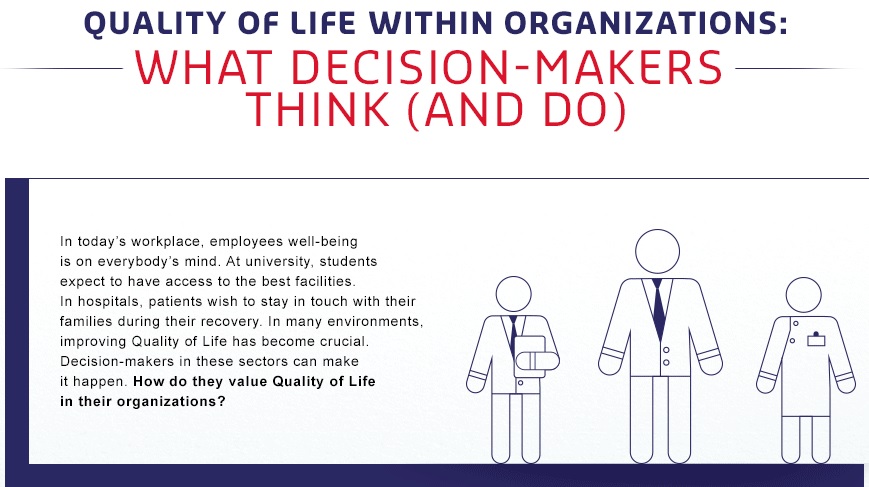Wellbeing in work: how leaders value quality of life and approaches to job design
Do leaders in the workplace value quality of life and how could a different (behavioural and adapative) approach to job design affect wellbeing at work?
How leaders value quality of life  was the focus of a recent study by Sodexo, the on-site services provider .
was the focus of a recent study by Sodexo, the on-site services provider .
780 interviews were carried out with leaders of Companies, Universities and Hospitals in six countries . →Detailed results
→Key findings below:
- Leaders value quality of life and link it to organisational performance

- The driving forces behind this are demands of the ‘end user’; a younger user with shifting needs; and political pressure.

- There a number of obstacles; the biggest being the shift from cost to investment.

The lead of our Work and Learning team,  Prof Kevin Daniels presented on Job design as part of the ongoing CEP wellbeing seminars at LSE.
Prof Kevin Daniels presented on Job design as part of the ongoing CEP wellbeing seminars at LSE.
→ Slides: Understanding Wellbeing at Work with an Adaptive and Behavioural Approach to Job Design
He outlined weaknesses in current guidance for minimising and improving wellbeing at work through enhancing the design of people’s jobs and went on to present an alternative approach focused on how workers interact with and act upon their work environment, and the reasons why they behave in the way that they do.
In particular, Kevin focused on
- the many ways in which workers use two important aspects of high quality jobs – the latitude to take decisions that affect how workers do their jobs and the support workers receive from colleagues.
- Kevin outlined a series of studies that investigated whether workers use these two aspects of high quality jobs to help them solve problems at work, express how they feel to co-workers and to take brief impromptu breaks during the working day.
- The studies demonstrated that workers who do so benefit from enhanced wellbeing and also enhanced learning on-the-job, cognitive performance, relationship quality and creativity.
Kevin concluded that current guidance needs to consider both the redesign of work and also how to train people in using key aspects of work to enhance their wellbeing.
→ Work, Learning and Wellbeing
